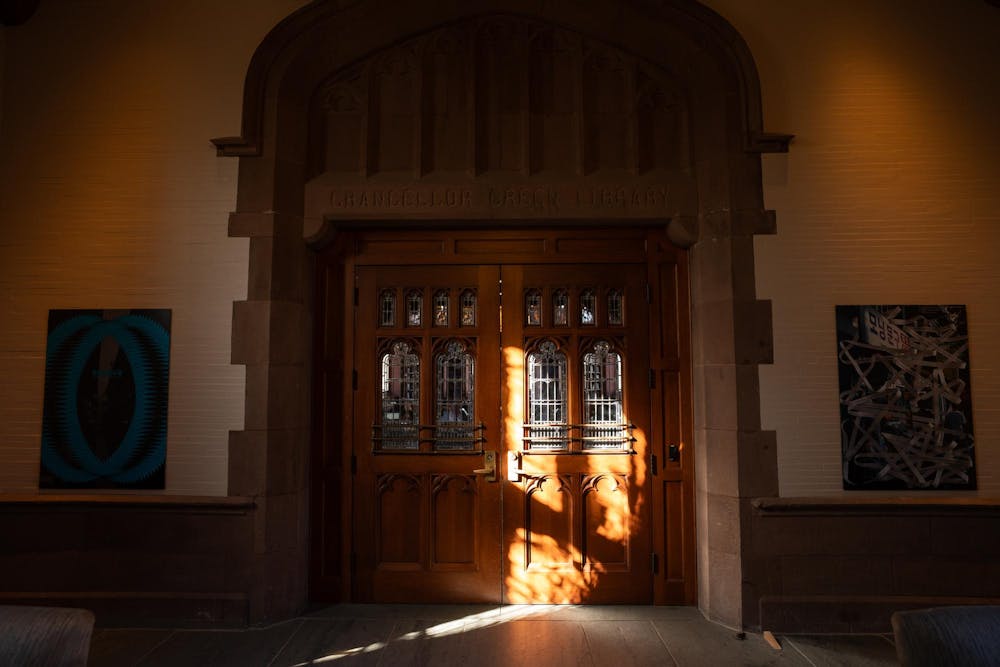The Department of French and Italian will add a Haitian Creole course taught by Lecturer Johnny Laforêt in Fall 2025 or Spring 2026. The new course follows interest in the language by students who attended Laforêt’s Haitian Creole language tables over the past several years.
“The need is there. A lot of students want to take it,” he explained in an interview with The Daily Princetonian. “I cannot even do it at a dining hall because there are too many people: how can you sit down with 30 students at a table? It’s almost impossible,” he added of his experience leading the tables.
Gil Joseph ’25, a sociology student from Haiti who is pursuing research on migration within the global South with a focus on Haiti and Haitians across Latin America, told the ‘Prince’ that he hopes “language is just the beginning of what I hope can be a deeper engagement with Haitian history and Haitian politics today.”
The course has been long in the making. In late 2023, the student organization Princeton Caribbean Connection (PCC) contacted Laforêt about collaborating on the Haitian Creole language tables he ran in the dining hall. With PCC’s involvement, the tables began to grow more popular.
Laforêt had already developed a Haitian Creole course at University of Illinois Urbana-Champaign, where he completed his PhD. As the language tables grew in popularity, creating a similar course at Princeton began to seem more feasible.
Joseph highlighted the significance of the new course. “The interest is there from the students and the community,” he said, noting that he and Laforêt have been discussing the creation of a Haitian Creole course since Joseph’s first year at Princeton.
The curriculum will begin as a 100-level course, although Laforêt hopes to expand into 200-level electives for students wishing to explore the culture and language in greater depth.
PCC co-president Mya Ramhi ’26, a student in the African American Studies department and a native Haitian Creole speaker, spoke with the ‘Prince’ on the Caribbean community on campus.
She discussed her time in PCC, explaining that the organization “make[s] space for Caribbean students at Princeton to feel welcome and be in community with other Caribbean students and also give[s] the wider campus community an opportunity to learn about the Caribbean.”
Ramhi has worked with Laforêt to popularize the Haitian Creole language tables and expressed her excitement about the Haitian Creole course’s development. Referring to the tables, Ramhi shared that “there has been a large demonstrated interest across campus among students to learn the language as well.”
Laforêt told the ‘Prince’ that there are “more than 70,000 Haitians living in New Jersey, and [Princeton] is close to New York and Philadelphia where there are a lot of Haitians.”
He envisions Haitian Creole courses having a strong emphasis on community immersion and integration. To do so, he plans to incorporate interactions with the vibrant Haitian immigrant community in Trenton into the course.

Both Joseph and Laforêt discussed how working with local Haitian communities could foster increased language acquisition and cultural immersion.
Joseph added that “we would be doing ourselves a disservice if we don’t take the time to really understand the community,” which he said includes numerous University employees within facilities and dining staff.
Sensing an eagerness from students to immerse themselves in Haitian culture and the Haitian Creole language, Laforêt has already developed a non-credit Haitian Creole course for this year’s Wintersession. “We will have two weeks of Haitian Creole where everybody can come if you’re a part of the Princeton community,” he said. “You can come and learn the language without... having a grade [or] having to take exams.”
Joseph tied the new Haitian Creole programming to broader developments in the Princeton community like student body expansion.
“As a Haitian myself, I really admire the work that Professor Laforêt has been doing to push for this language course,” he said. “We are in serious need of more diversification of our course offerings in light of the expansion of the student body.”
“We are trying to attract talent from communities that historically have not been represented on campus, so I hope our courses are representative of that,” he concluded.
Isaac Bernstein is a News contributor for the ‘Prince.’ He is from Pittsburgh, Pa.
Please send any corrections to corrections[at]dailyprincetonian.com.
Correction: A previous version of this article listed Joseph as Haitian-American. He is an international student from Haiti. The article has been updated to accurately reflect the start date of the language tables.








